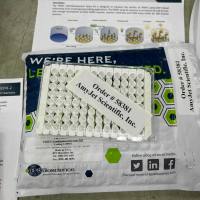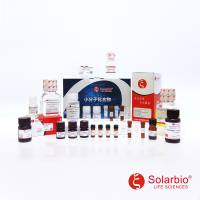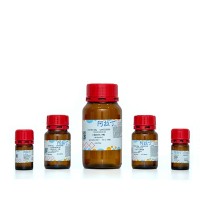【进展|热点】Life Sciences:酗酒引起免疫功能减低的机制
丁香园论坛
1787
<center>
<font>酗酒引起人类肥大细胞的凋亡</font></center>
1.背景:目前认为酗酒可导致免疫功能抑制,而增加感染的机率,但是确切的机制不明。肥大细胞(mast cell,MC)属于固有免疫系统,可抵御细菌和寄生虫的感染。本文章主要研究了乙醇及其代谢产物乙醛对肥大细胞生存能力、增殖能力和凋亡的影响。
2.方法:采用3种细胞系,分别是人类肥大细胞系(HMC-1)、小鼠骨髓干细胞诱导的肥大细胞系(mBMMC)和人类外周血诱导的肥大细胞(HuMC)。用H3掺入法、台酚蓝检测细胞增殖能力;用ELISA、TUNEL方法检测核小体、caspase-3, caspase-8 和caspase-9等凋亡相关因子;分别采用RT-PCR、western blot检测凋亡相关蛋白Bcl-2、BAX的表达。
3.结果:乙醇对HMC-1 和mBMMC细胞系有剂量依赖性抑制作用,但未发现乙醛有此作用。当乙醇的浓度为43mM时,可对HMC-1细胞达到最大促凋亡作用。研究还发现此凋亡过程与caspase-3活性明显增强,以及caspase-8 、caspase-9活性中度增强相联系。此外,酒精还可以改变Bcl-2/BAX平衡,而有益于细胞凋亡。
4.结论:酒精诱导的肥大细胞活性降低可能与酗酒者免疫功能低下相关。
5.原文推荐
<center> Ethanol induces apoptosis in human mast cells.</center>
Nurmi K, Methuen T, Mäki T, Lindstedt K, Kovanen PT, Sandler C, Eklund KK.
Wihuri Research Institute, Helsinki, Finland; Research Unit of Substance Abuse Medicine, University of Helsinki, Biomedicum, Helsinki, Finland.
AIMS: Alcohol abuse is associated with increased frequency of infections attributed to ethanol-induced immune suppression. The precise mechanism of immune suppression is however not known. Mast cells (MC) belong to the innate immune system and they have been implicated in first line of immune defence
against bacteria and parasites. Therefore we studied the effects of ethanol and its first metabolite acetaldehyde on mast cell viability, proliferation and apoptosis. MAIN METHODS: Human mast cell line (HMC)-1 cells, mouse bone marrow
derived mast cells (mBMMC) and human peripheral blood derived mast cells (HuMC) were used. Effects of ethanol and acetaldehyde on mast cell proliferation were determined by assessing incorporation of [(3)H]thymidine into cellular DNA
and by trypan blue exclusion. Apoptosis was assessed by measuring apoptotic nucleosomes and caspase-3, -8 and -9 activities using ELISA and by using TUNEL assay. The expression of anti- and proapoptotic proteins Bcl-2 and Bax were analyzed by RT-PCR and western blot, respectively. KEY FINDINGS: Ethanol, but not acetaldehyde inhibited dose-dependently the proliferation and viability HMC-1 and mBMMC cells. The decreased viability was caused by apoptotic cell death of the MC. Significant apoptosis of HMC-1 cells was observed in the presence of 43mM (2.5 per thousand) ethanol. Induction of apoptosis was associated with clearly increased
caspase-3 activity and moderately increased caspase-8 and 9 activities. Ethanol also shifted the Bcl-2/Bax balance towards apoptosis. SIGNIFICANCE: The ethanol-induced reduction of MC viability could contribute to immunosuppression associated
with ethanol abuse.
6.全文下载(目前仅为Manuscript版本)
1.背景:目前认为酗酒可导致免疫功能抑制,而增加感染的机率,但是确切的机制不明。肥大细胞(mast cell,MC)属于固有免疫系统,可抵御细菌和寄生虫的感染。本文章主要研究了乙醇及其代谢产物乙醛对肥大细胞生存能力、增殖能力和凋亡的影响。
2.方法:采用3种细胞系,分别是人类肥大细胞系(HMC-1)、小鼠骨髓干细胞诱导的肥大细胞系(mBMMC)和人类外周血诱导的肥大细胞(HuMC)。用H3掺入法、台酚蓝检测细胞增殖能力;用ELISA、TUNEL方法检测核小体、caspase-3, caspase-8 和caspase-9等凋亡相关因子;分别采用RT-PCR、western blot检测凋亡相关蛋白Bcl-2、BAX的表达。
3.结果:乙醇对HMC-1 和mBMMC细胞系有剂量依赖性抑制作用,但未发现乙醛有此作用。当乙醇的浓度为43mM时,可对HMC-1细胞达到最大促凋亡作用。研究还发现此凋亡过程与caspase-3活性明显增强,以及caspase-8 、caspase-9活性中度增强相联系。此外,酒精还可以改变Bcl-2/BAX平衡,而有益于细胞凋亡。
4.结论:酒精诱导的肥大细胞活性降低可能与酗酒者免疫功能低下相关。
5.原文推荐
<center> Ethanol induces apoptosis in human mast cells.</center>
Nurmi K, Methuen T, Mäki T, Lindstedt K, Kovanen PT, Sandler C, Eklund KK.
Wihuri Research Institute, Helsinki, Finland; Research Unit of Substance Abuse Medicine, University of Helsinki, Biomedicum, Helsinki, Finland.
AIMS: Alcohol abuse is associated with increased frequency of infections attributed to ethanol-induced immune suppression. The precise mechanism of immune suppression is however not known. Mast cells (MC) belong to the innate immune system and they have been implicated in first line of immune defence
against bacteria and parasites. Therefore we studied the effects of ethanol and its first metabolite acetaldehyde on mast cell viability, proliferation and apoptosis. MAIN METHODS: Human mast cell line (HMC)-1 cells, mouse bone marrow
derived mast cells (mBMMC) and human peripheral blood derived mast cells (HuMC) were used. Effects of ethanol and acetaldehyde on mast cell proliferation were determined by assessing incorporation of [(3)H]thymidine into cellular DNA
and by trypan blue exclusion. Apoptosis was assessed by measuring apoptotic nucleosomes and caspase-3, -8 and -9 activities using ELISA and by using TUNEL assay. The expression of anti- and proapoptotic proteins Bcl-2 and Bax were analyzed by RT-PCR and western blot, respectively. KEY FINDINGS: Ethanol, but not acetaldehyde inhibited dose-dependently the proliferation and viability HMC-1 and mBMMC cells. The decreased viability was caused by apoptotic cell death of the MC. Significant apoptosis of HMC-1 cells was observed in the presence of 43mM (2.5 per thousand) ethanol. Induction of apoptosis was associated with clearly increased
caspase-3 activity and moderately increased caspase-8 and 9 activities. Ethanol also shifted the Bcl-2/Bax balance towards apoptosis. SIGNIFICANCE: The ethanol-induced reduction of MC viability could contribute to immunosuppression associated
with ethanol abuse.
6.全文下载(目前仅为Manuscript版本)







